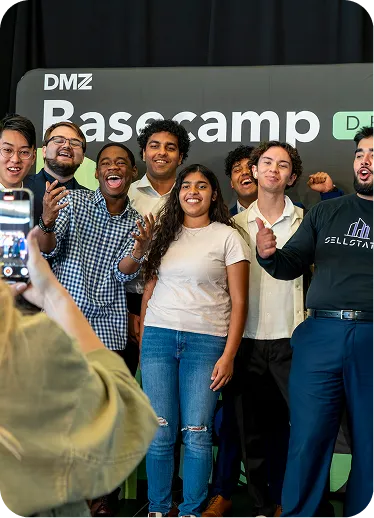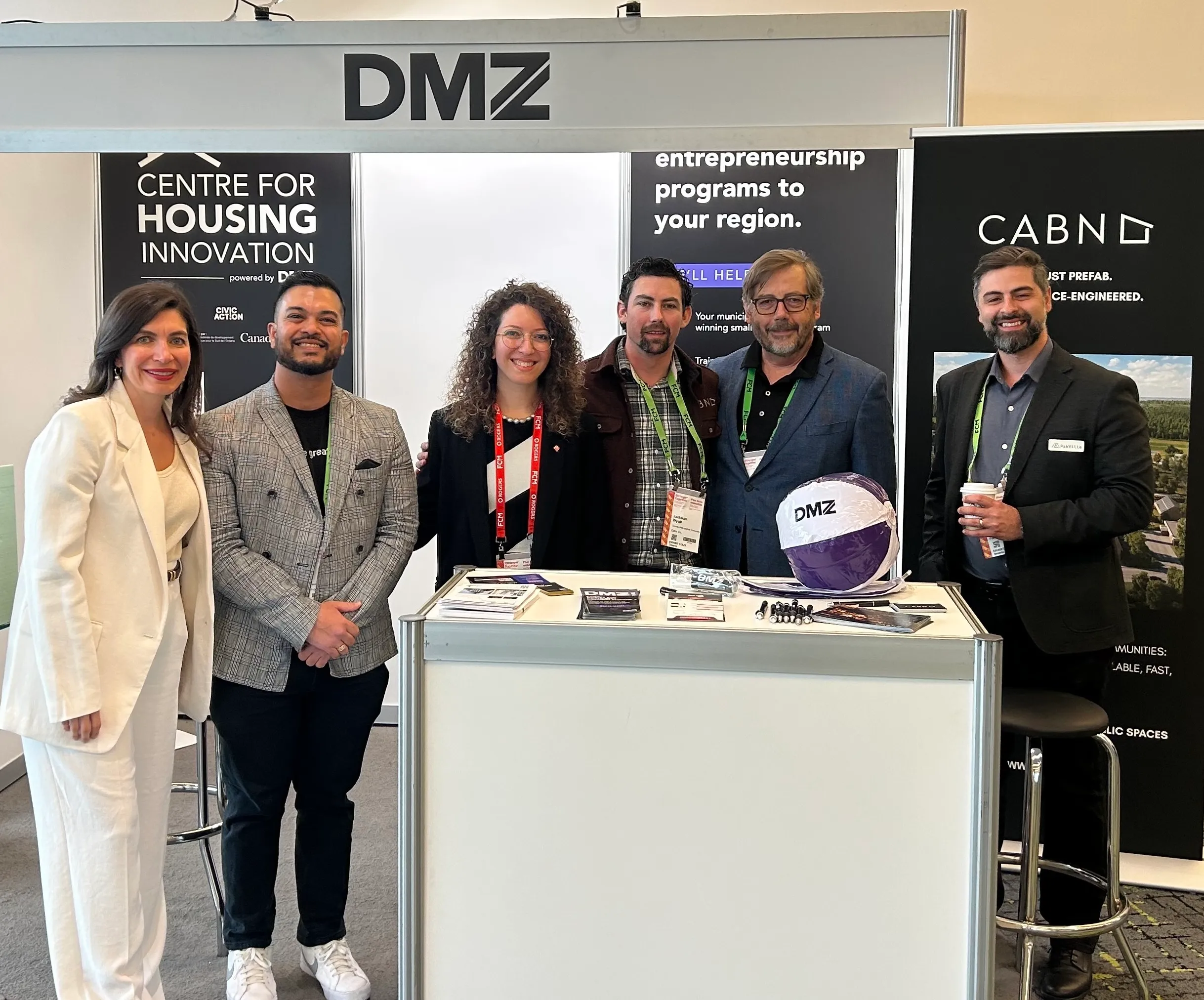In light of Mental Health Week, the DMZ sat down with mental health startup founders for an inside scoop on how their companies are addressing mental health.
This week is Mental Health Week in Canada (May 3-9, 2021), and this year's focus is to #GetReal about how you feel. That means the Canadian Mental Health Association is calling on us to express how we feel..."name it, don't numb it".
As you probably don't need reminding, the past year has been a time of much anxiety and isolation. Almost everyone is feeling some level of worry, loneliness, sadness, anger, exhaustion and (as identified by this viral article in the New York Times) languish.
Having a wide variety of emotions is human. Feeling and naming our emotions - even the uncomfortable ones - is part of good mental health.
To contribute to this week's dialogue, we sat down with founders from two of our startups to talk mental health. In conversation is Mohsen Omrani, CEO & President of OPTT Inc., along with Alli's Sarah Rennick, CEO & Co-Founder, and Cherry Xu, CTO & Co-Founder.
Here's what they had to say:
Q: How is your company tackling mental health?

Sarah: Alli is our way of helping parents prioritize themselves - and become happier and more confident in the process. We do this by helping parents find support from licensed therapists who specialize in their current stage of parenthood.
Our matching algorithm uses a 3-minute questionnaire completed by the parent to dive into their challenges and goals, and we use that to match them with the most compatible therapist. They say it takes a village to raise a child, and we would add that it also takes the right support team.
Mohsen: OPTT is a virtual mental health platform targeted at healthcare organizations. Our goal is to help increase their care capacity and personnel efficiency by 4x. Instead of providing care to a limited number of patients, our vision is to develop clinically-validated, scalable solutions that allow clinicians to deliver high-quality mental health care to anyone, anywhere, anytime.
We recently announced a new partnership with Curatio to create a one-stop app with trusted news, community support and professional health care services. We are looking to expand this partnership by bringing a group of health care providers who are focused on mental health or chronic conditions, such as diabetes. We're also now actively looking for local and federal entities to pilot the app with their members.
Q: How has the pandemic affected your work in the mental health space?

Mohsen: For us at OPTT, the COVID-19 pandemic has been a turning point. We recognized, early on, that this challenge would create a silent mental health pandemic, which may only worsen in scope and severity in the months to come if left unchecked. To make matters worse, our current health system is strained and unable to meet demands. We saw an urgent need to develop innovative approaches to expand the capacity of mental health care delivery.
Already established as a virtual mental health platform, we teamed up with our clinical partner to develop and validate a new care plan that directly addresses mental health challenges caused by the COVID-19 pandemic. Our commercial partners have already achieved exciting results. The program has shown to reduce both anxiety and depression symptoms of employees by 40% in just the first five weeks of the nine-week program.
Cherry: That's a great question. The truth is, the idea for Alli actually arose during the pandemic. We had been running our startup, Mama Mobile, which is a service that helps busy moms in the GTA and Ottawa get in-home massage therapy services, and with all of the lockdowns, we knew we needed to find different ways to support our communities.
We did what any founder-at-heart does and we conducted 100 customer calls to talk with moms about what they needed most! What we heard was a resounding call for more mental health support. From there, Alli was born.
Q: Have your customers' needs changed with the pandemic?

Cherry: We've seen our customers' needs change with the pandemic. In particular, we've seen parents struggle with added responsibilities and fewer breaks. With less time for themselves, it's also been challenging for parents to find therapists that they can connect with and that truly focus on their life stage.
Many parents put their own needs on the back burner - if this was true before COVID-19, it's even more evident now. That's why we're trying to make it easier for parents to get matched with the right therapist.
Mohsen: Yes, definitely. Many telemedicine companies that previously didn't have mental health services have since added our product to their offerings. Plus, with increasing demands for care, our customers have looked to us to provide additional capacity and support.
As a result, our partnerships and sales have accelerated and the number of patients using our platform has tripled.
Q: What advice would you give to startup founders to help protect their mental wellbeing?
Sarah: This is such an important question. One stigma that I'd like to disrupt is the mindset that you only need mental health support when you're in crisis. So many of us wait until we hit that breaking point to reach out to a therapist.
I recognized, a while back, that it's incredibly important to give my mental health regular TLC. Entrepreneurs are constantly on the line between burnout and the next big win, and we need to find ways to recharge. Of course this is easier said than done, but I try to stay accountable by making time for bi-weekly therapy appointments. These have been a good chance to learn more about myself.
I've also been learning how to better protect my energy, and what works (for me) to recharge it. I feel like it's a process of continually sharpening my communication skills so I can name my emotions and ask for what I need, while also working to understand the world around me a little better. It's not easy, but I think these are things we don't talk about enough as entrepreneurs.
Mohsen: These are all great points that Sarah makes. Adding to that, I think it's important for startup founders to remember that this is a marathon, not a sprint. It's so important to pace ourselves and remember to take care of ourselves - every day, every month, every year.
And most importantly, when the pressure is too high for one person, it's important to find a good support person to talk to. There is zero shame in asking for help.
Do you need mental health support?
If you're struggling with your mental health, know that you're not alone.
A great resource you can check out is confidential video counselling offered by DMZ alumni Inkblot Therapy. Inkblot's services are completely free to many members of the DMZ community. This includes staff, their families, Incubator program startups, alumni and their families.
If you want to join the conversation on mental health and #GetReal about how you feel, head over to our social media accounts where we'll be continuing the dialogue.


.webp)




